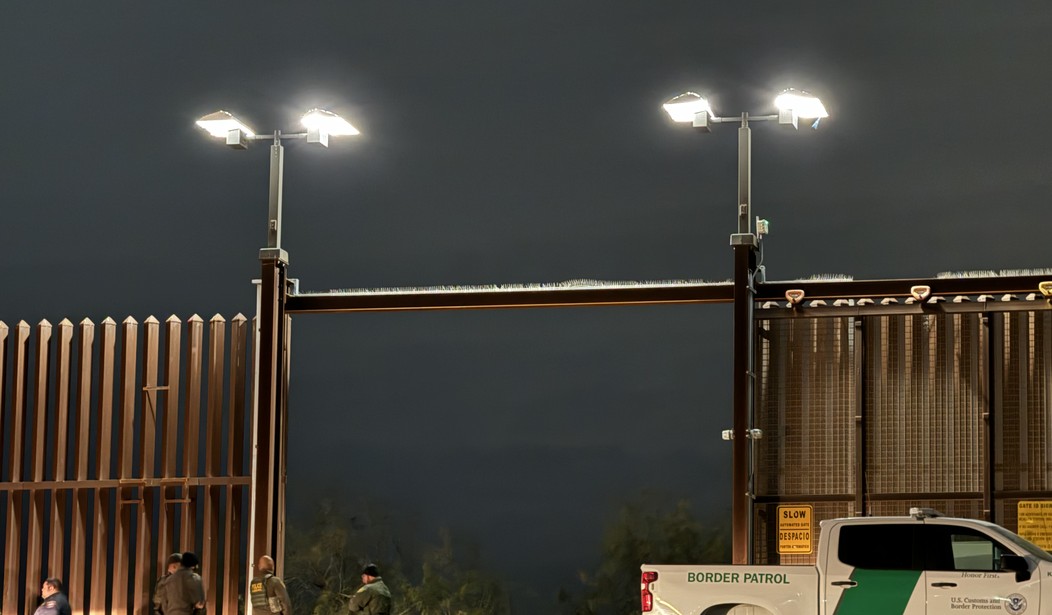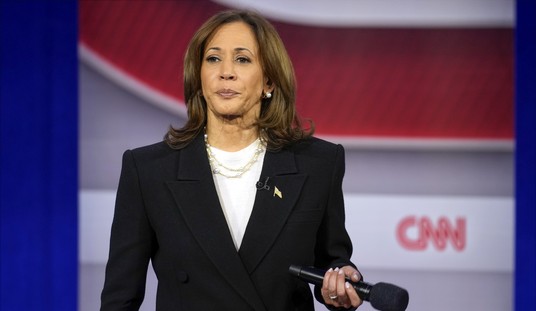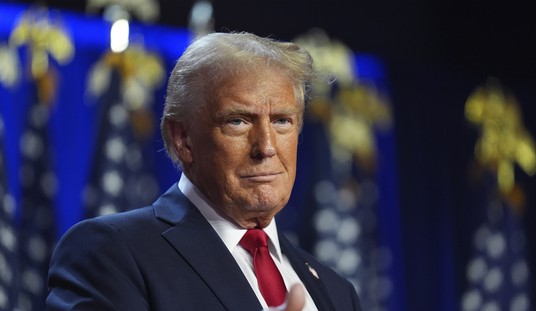When John Modlin, the chief patrol agent for the Border Patrol's Tucson Sector, testified before the House Committee on Oversight and Accountability on Feb. 7, Rep. Nancy Mace (R-S.C.) asked him a straightforward question.
"How many agents roughly do you guys think that the Border Patrol needs right now?" she said.
"So, the Border Patrol is at about 19,300 or so," he said. "I think a reasonable amount of agents for the Border Patrol would be about 22,000."
Yet, during President Joe Biden's time in office, as Jake Smith of the Daily Caller News Foundation has reported, Customs and Border Protection has faced two challenges: a surge in illegal immigrants coming across the border and a stagnation in the number of Border Patrol agents deployed to stop them.
On May 3, the inspector general for the Department of Homeland Security issued a report entitled "Intensifying Conditions at the Southwest Border Are Negatively Impacting CBP and ICE Employees' Health and Morale."
"CBP and ICE workloads have grown significantly due to factors beyond the Department of Homeland Security's control, namely increasing border encounters and travel volume," said this report. "Despite greater workloads, staffing levels have remained the same, with CBP and ICE using details and overtime to temporarily address the rising number of encounters along the Southwest border."
"Unless CBP and ICE assess and strategically change their current staffing management at the border, heavier workloads and low morale may lead to higher turnover and earlier retirements," said the inspector general. "This could worsen staffing challenges and degrade CBP and ICE's capacity to perform their mission."
Recommended
An historical table posted online by CBP shows that the total number of Border Patrol agents nationwide peaked at 21,444 in fiscal 2011. That year, the Border Patrol had 18,506 agents on the southwest border. In fiscal 2012, there were 21,394 Border Patrol agents nationwide, and 18,516 were deployed at the southwest border. In fiscal 2013, there were 21,391 Border Patrol agents nationwide, and the number deployed at the southwest border peaked at 18,610.
But by fiscal 2017, the number of Border Patrol agents nationwide had dropped to 19,437, and the number deployed at the southwest border had declined to 16,605.
Between then and fiscal 2022, the year that saw the most Border Patrol agents deployed at the southwest border was fiscal 2020. That year, according to the inspector general's report, it was 16,878.
To put that in perspective, a Congressional Research Service report estimated the number of civilian federal employees in each state as of March 2023 (excluding employees of the Bureau of the Mint, the Federal Bureau of Investigation, the Drug Enforcement Agency, the Bureau of Alcohol, Tobacco, Firearms and Explosives and the Secret Service). According to these estimates, the number of civilian federal workers in 34 of the 50 states exceeded the 16,654 Border Patrol agents that the inspector general reported were deployed at the U.S.-Mexico border in fiscal 2022.
For example, there were 18,649 civilian federal workers in Louisiana, the home state of Republican House Speaker Mike Johnson. In Kentucky, the home state of Senate Minority Leader Mitch McConnell, there were 22,079 civilian federal employees.
In New York, the home state of House Democratic Leader Hakeem Jeffries and Senate Majority Leader Chuck Schumer, there were 51,716 civilian federal workers.
Those civilian federal workers in New York equaled more than three times the 16,654 Border Patrol agents that the government had deployed to the U.S.-Mexico border in 2022.
The 16,878 Border Patrol agents who were deployed at the southwest border in fiscal 2020 had an average of 33,388 migrant encounters per month, according to the inspector general. By fiscal 2022, when the number of Border Patrol agents had dropped to 16,654, the average number of migrant encounters per month had jumped to 183,870.
On May 11, the Republican-controlled House voted 219-213 to approve H.R. 2, the Secure the Border Act. This act, according to its official summary, would require "CBP to maintain an active duty presence of at least 22,000 full-time equivalent Border Patrol agents by September 30, 2025."
It also, according to the Congressional Budget Office, "would require DHS to resume activities related to building a wall along the southwestern border of the United States, as planned or under construction before January 20, 2021 (the date on which the project was paused), and would require DHS to construct at least 900 miles of wall and physical barriers along that border."
Not one Democrat was among the 219 House members who voted for this bill.
In the Senate, Majority Leader Chuck Schumer is committed to stopping it.
"Yesterday, a group of Senate Republicans released a proposal for border security that they want in exchange for Ukraine funding, and they know full well what they came up with is a total nonstarter," Schumer said in a Nov. 7 floor speech. "Instead of putting together commonsense border policies that can pass in divided government, Senate Republicans basically copied and pasted large chunks of the House's radical H.R. 2 bill, and that is their asking price for helping Ukraine."
"That won't work," Schumer said.
The ultimate question is this: Do Schumer and Biden actually want a southwest border that works -- by stopping people and drugs from illegally crossing it?
Or do they want an open border?
























Join the conversation as a VIP Member